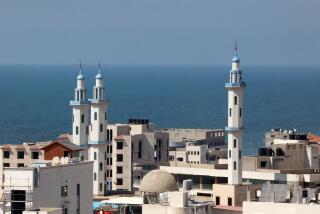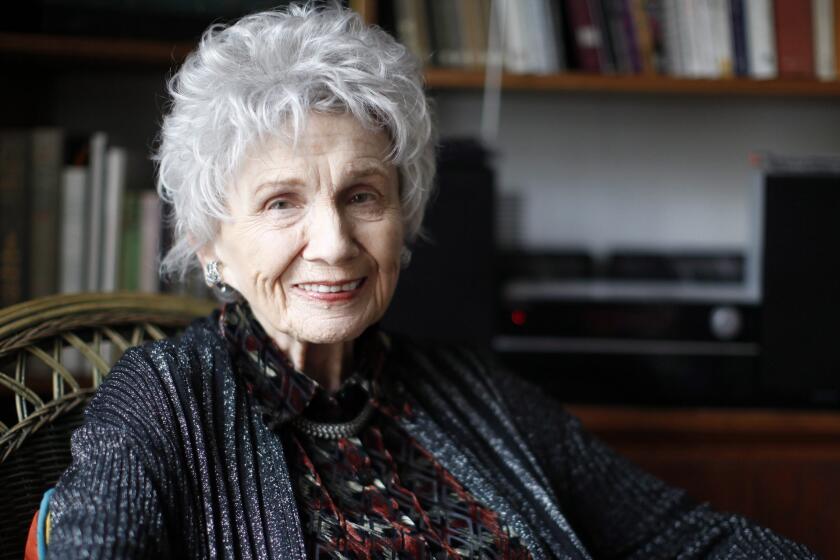Crime without punishment
THE new novel by Ismail Kadare, who won the 2005 Man Booker International Prize, begins with a time-honored narrative device: a corpse. And not just any corpse. On a cold December morning in 1981, the anointed successor to Albania’s current dictator is found in his bedroom with a bullet in his brain. The official verdict is suicide. The public, which already has seen the regime take a chain saw to its political deadwood on numerous occasions, suspects murder. And the reader of “The Successor” awaits the entrance of a detective -- a Balkan-style Sherlock Holmes in a white tarboosh -- to finger the guilty party.
The reader will wait in vain. Because in Albania, as in every totalitarian society, guilt and innocence have brokered a new, symbiotic relationship. Nobody is quite free of corruption. Everybody spies on his neighbor, and is spied upon in return: “The only way you can get a grip on a place overcome by paranoia,” Kadare writes, “is by becoming a little paranoid yourself.” This is not an atmosphere conducive to neat solutions.
Each passing chapter renders the Successor’s death more, not less, mysterious. The author introduces some likely suspects. The victim’s daughter Suzana, for example, has been forced to ditch her first love in deference to her father’s career. She certainly has a motive. So does Interior Minister Adrian Hasobeu, whose path up the political ladder has been blocked by the Successor’s eminence. Meanwhile, the architect of the Successor’s stunning new villa -- which many saw as a hubristic affront to the old guard -- insists that he’s the killer.
Slowly, fearfully, the state investigation grinds forward. Along the way, we see how the aging despot -- known as the Guide -- had grown disenchanted with his second-in-command. There are also some quick lessons in ideological contagion, which is passed along as easily as the common cold. “You thought you were as white as snow,” the author reflects, “and then, without even knowing what you had done, you found you had been subjected to foreign influences. Or that you had been contaminated despite yourself by the wind of liberalism. It wasn’t by chance they called them winds of ill fortune -- you could get caught out by a diabolical draft anyplace you stood.”
Yet we still can’t solve the crime. The facts scurry out of reach, and the narrative moves along in a strange, dreamy, sideways fashion. The impossibility of knowing anything with absolute certainty -- an epistemological dilemma that seems oddly heightened on the Balkan peninsula -- keeps us at a distance. It can also make for a frustrating read. We feel as if the author were applying the gas and the brake pedals at the same time.
At one point, Kadare suggests that this is, in fact, the logic of totalitarian life. “Terror was constructed backwards,” he writes, “like dreams, which is to say, starting from the end. Then, in a flash, sometimes in a mere second or even less, the entire missing part was suddenly filled in.” It’s true -- the closest we get to a solution comes in a final communique from the victim, speaking from beyond the grave. And there remains something unreal about “The Successor.” Even when Kadare describes the fading winter light of the Albanian capital, Tirana, or “the smell bodies make when they are afraid,” he seems to be recounting an unusually specific nightmare.
How ironic, then, that he leans so heavily on historical fact. Kadare’s novel is plainly based on the events of Dec. 18, 1981, when Mehmet Shehu, the heir apparent to the enfeebled Communist dictator Enver Hoxha, was found shot dead in his villa. Initial reports called it a suicide. Investigations followed. A year later, after declaring that Shehu had been a CIA puppet, the dictator threw the surviving family in prison. Only one son lived through the ordeal -- and, according to the novel’s publisher, Kadare had a number of conversations with Bashkim Shehu before writing “The Successor.”
Nowhere in the book does Kadare allude to the factual basis of his creation. Yet he does offer an intriguing spin on the usual authorial disclaimer: “The events of this novel draw on the infinite well of human memory, whose treasures may be brought to the surface in any period, including our own. In view of this, any resemblance between the characters and circumstances of this tale and real people and events is inevitable.”
“The Successor,” Kadare seems to be saying, is an ugly but archetypal tale. It has happened before and will happen again. Small wonder that his novel partakes of both fiction and fable, refracted history and bad dream. It draws you in even as it fends you off, and like the very best books, demands that ultimate tribute from the audience: a second reading. *
More to Read
Sign up for our Book Club newsletter
Get the latest news, events and more from the Los Angeles Times Book Club, and help us get L.A. reading and talking.
You may occasionally receive promotional content from the Los Angeles Times.






